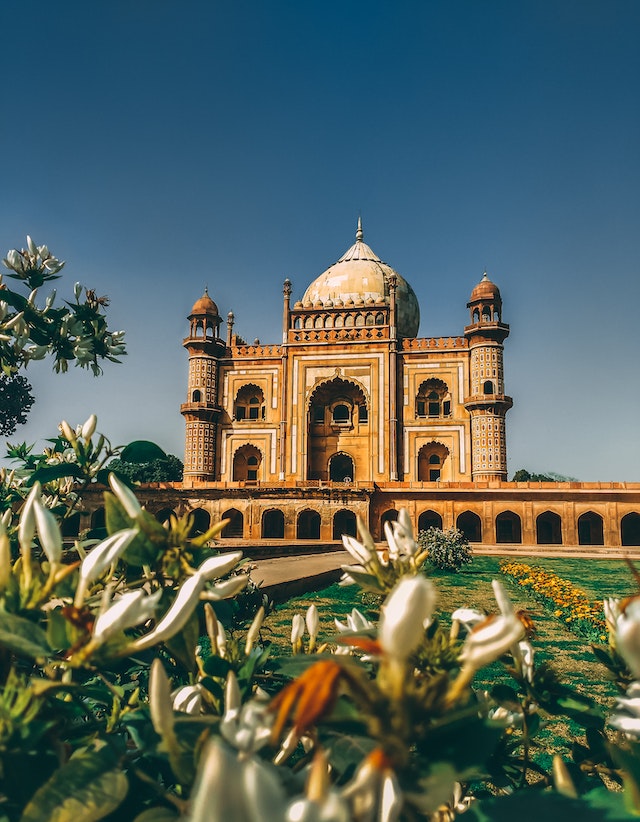Travel Advice and Checklist For India For 2024

From the snow peaked mountains of Ladakh to the backwaters of Kerala, India offers a breathtaking variety of scenery and culture. However, US citizens need to prepare carefully for their trip to this fascinating country.
Make sure to get all your vaccinations, including hepatitis A and B, typhoid fever, polio, and rabies. It’s also a good idea to take antimalarials.
1. Know Your Passport
A passport is an important document that you need to have if you want to travel. It also helps you verify your citizenship. This is why it is crucial to know about different types of passports in India.
This is the type that is issued to general travelers planning leisure or business trips abroad. It is blue in color to differentiate it from government officials. It can be tracked using the Passport Seva Kendra website by logging in with your unique passport reference file number.
2. Know the Weather
India is a large country with many climates and weather patterns. The south and the southwest of India are tropical regions with high temperatures year-round and heavy rainfall.
The monsoon season runs from June to September. Heavy rains can lead to flooding and landslides. This can make overland travel difficult and dangerous.
Winter in India starts in mid-November and lasts through February. It can get cold in the mountain areas.
3. Get Vaccinated
Vaccinations are essential for any traveler to avoid contracting endemic diseases. The hepatitis A and B, typhoid, and cholera vaccines are recommended for all travelers to India.
A Japanese encephalitis vaccine may be needed for longer trips into rural areas of the country and travellers who engage in outdoor activities during the evening. A rabies vaccination is also important for travellers who will interact with animals such as monkeys and dogs.
4. Get a Travel Insurance
As with any trip, a travel insurance is essential for your safety. It covers your medical expenses, loss of belongings and other important coverages. You can find the best plan for your trip by using our compare tool.
Exercise heightened caution in India due to crime, civil unrest and terrorism (level 3 of 4). Avoid non-essential travel to Manipur, Tripura, Nagaland, and parts of Assam that border Myanmar and Bangladesh because of armed insurgent activity.
5. Get a Medical Insurance
Travelers should consider getting a medical insurance before visiting India. This is important because medical costs in India can be high, especially for people with pre-existing medical conditions.
Avoid non-essential travel to Manipur, Tripura, Nagaland, and parts of Assam due to the threat of armed insurgent activity and politically motivated violence (level 3 of 4). Rabies is a risk in India; be sure to get a rabies vaccine if travelling with pets or other mammals.
6. Get a Visa
If you’re a tourist you’ll need to get a visa for India. Always do this through your travel agency or a reputable online agent to ensure you don’t get ripped off.
Remember that cattle is a sacred animal in Hindu culture. Don’t whip or hurt them and avoid using any products made from cows. Use your right hand when eating – the left is considered unclean. Be aware of political protests and demonstrations and avoid them whenever possible.
7. Pack Strictly Necessary
It is a good idea to pack a small first aid kit with band-aids, disinfectant and antiseptic wipes. Having this in your bag can save you time, money and hassle in case of any emergency.
You should bring a water bottle with a filter to avoid getting sick from drinking the local tap water. You should also bring rehydration sachets.
Remember to leave behind any tight, revealing clothing and any body hugging clothes. It will attract unwanted attention and is not appropriate in India’s conservative culture.
8. Get a Local SIM Card
This is a great way to communicate with locals and stay in touch with friends/family. Plus, you can save on data usage by getting a prepaid plan.
It’s important to abide by local laws and culture when travelling abroad. Avoid photographing bridges, military or border crossings and do not eat beef (cows are sacred in India).
Make sure to get the right power adapter for your devices, as India uses different plugs from home. And it’s best to bring a plug-in mosquito deterrent.
9. Stay Safe
India is a difficult destination to travel but it can also be one of the most rewarding. It has incredible sights, delicious food and fascinating culture.
Exercise a high degree of caution due to the risk of terrorist attacks, violent demonstrations and armed clashes. Avoid crowded places and possible targets such as religious ceremonies or gatherings.
Be vigilant to scams involving jewellery, gemstones and carpets. Some taxi drivers may try to export these items without your knowledge.